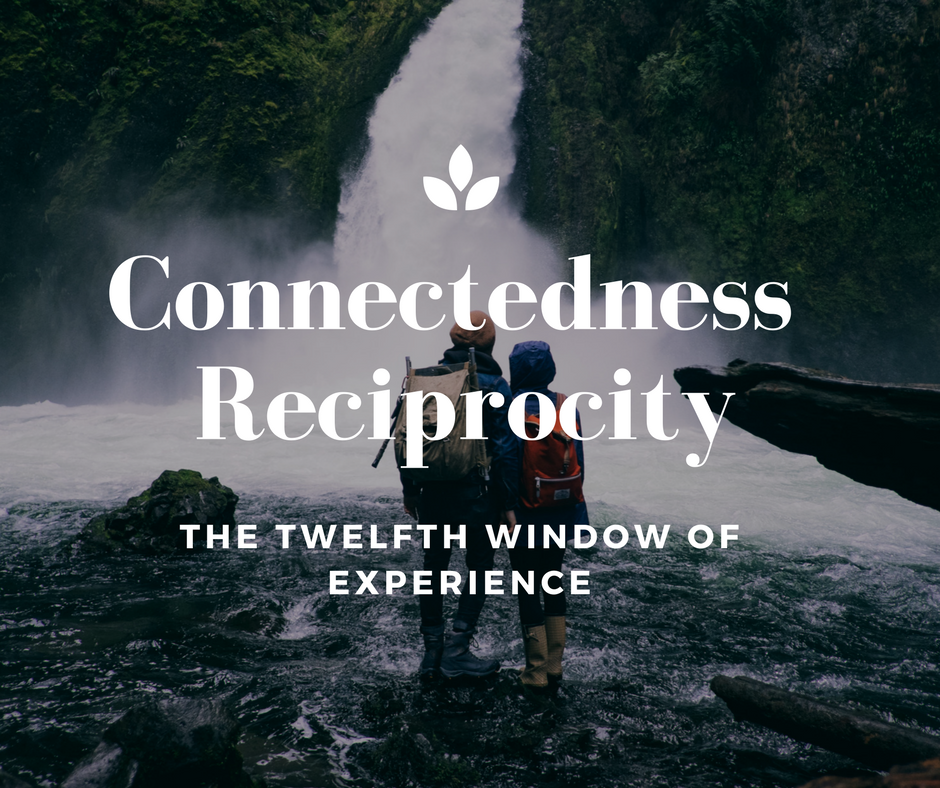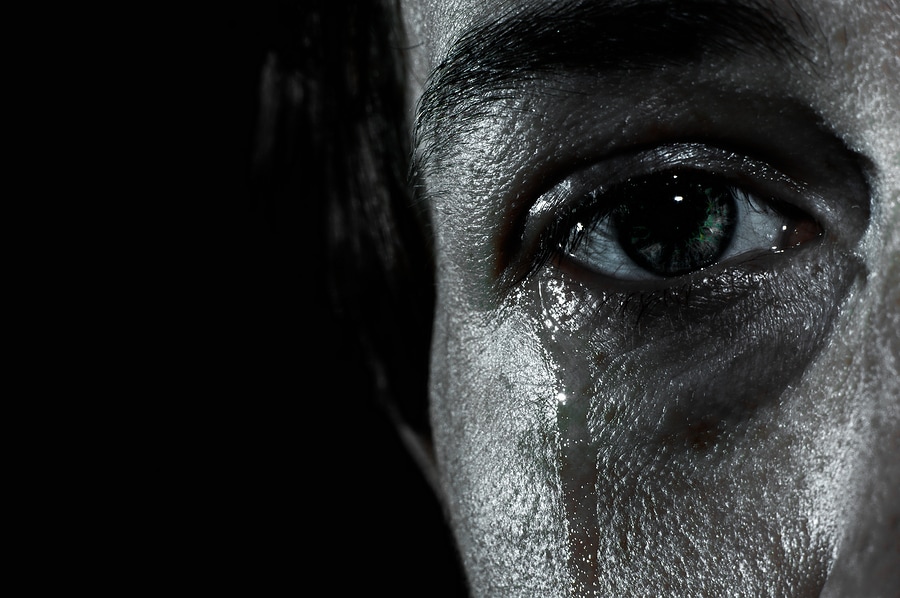|
The thirteenth window is physicalness or risking. Humans too readily forget that their bodies speak loudly to their close and ongoing relationship to their evolutionary past. We are still animals, and, in certain ways, still closely connected to the plants. We must not forget that we are a part of all living things. Animals and plants do not destroy their bodies. They take risks to live, but they do not undo themselves for unnatural reasons. Humans do, particularly in their self-diminishment. Animals and plants do not pity themselves in their ecological survival struggles. Humans do. Animals and plants seldom appear to be plagued with problems of self-destructiveness. Humans are.
Animals and plants seldom forgo the important part that taking risks plays in their continuing being. They dare to try, to evolve. We can come to know this through unending attentiveness to the physical--to the animal and plant world and to our own bodies and souls. To stay alive we have to experience the beautiful exhilaration of being, experiencing ourselves in our physicalness--when we just walk, much less dance. To repress or forgo that exhilaration is to jeopardize our self-being. Taken from The Windows of Experience by Malone and Malone
0 Comments
The twelfth window of experience is connectedness or reciprocity. All experience is reciprocal and involves connection to some other. Much of psychotherapy is the task of helping a person understand that they always participate in what happens in their relational experiences. This does not mean that they are at fault. It simply means that they participate, they are indeed connected and they have to acknowledge the ongoing reciprocity in the experience. They can persist in trying to change the other person to make the relationship better, but doing so is a losing endeavor. We can only change ourselves. As Thomas a Kempis said in The Imitation of Christ, "Be not angry that you cannot make others as you wish them to be, since you cannot make yourself as you with to be."
That fact is true of all relationships, even in psychotherapy. A therapist cannot change another person. Growth is always emergent, and ways of growing--or not growing--are learned early in life. If a child has a playmate whom she has continued to pay with over a period of time, and she comes complaining to her father about how badly that other child has treated her, and if he deals with his child by suggesting that there are some people who are so messed up that you simply cannot get along with them, then he is being irresponsible. He is undermining in the child an important awareness--that regardless of the other child's problems, his own child has something to do with what has happened in that relationship. She is the creator of her ordinary living, not just the created. The father forgets the truth of which John Ruskin spoke in Time and Tide: "To make your children capable of honesty is the beginning of education." There is no honesty in living in a nonreciprocal world. Even in our solitary experiences, our dreams, our meditative reflections, our planning, our worrying, or our fantasies, we are dealing with reciprocities--reciprocities with memories, expectations, and lingering consciousness. We must always remember that we are participating in the unending reciprocity of life. Otherwise, we are seduced by the notion that others are doing it to us; we are seduced into becoming less that whole. Taken from The Windows of Experience by Malone and Malone Getting stuck is all too common for many couples. We want things to move forward smoothly and consistently. The truth is, having problems isn’t the problem. Getting stuck and not being able to solve problems … that’s the problem.
If you’ve ever played a musical instrument you know the experience of practicing a piece, making a mistake, stopping and starting over again only to make the same mistake again. The spot where things go bad can acquire an energy that’s difficult to overcome. Each time you approach that spot there’s a tendency to anticipate a mistake and therefore an increased likelihood that the mistake will actually occur. Because relationships operate in patterns or cycles, couples experience this phenomenon often. The persistence of the stuck places can be incredibly frustrating. Here are five tips for what to do when you’re feeling that familiar and frustrating stuck spot in your relationship. 1. Take a “revolutionary pause.” The revolutionary pause is more than just stepping back and counting to ten. It’s all about what you do when you’ve stepped back. It isn’t a passive waiting. It’s very active. Taking a revolutionary pause means giving yourself an opportunity to take in the big picture of what is happening. Feeling stuck inspires a natural inclination to focus intently on the specific circumstances of your “stuckness.” In that moment it can be very helpful to locate yourself in the larger pattern of your relationship. Once you’ve located yourself in the pattern, you can more easily say, “Oh, this is just a particular spot in our relationship. It isn’t the whole of the relationship. By noticing that it’s only a spot, you give yourself a chance to gain a different, more productive, perspective. 2. Shake it off. Much of how we are in relationships is physical. Most of us are inclined to forget that. We tend to think thoughts are the primary source of information. Actually, our bodies inform us all the time. Tension, for example, clearly shows up in the body. And, getting stuck usually brings on tension. If you’ve ever watched a nature program where the cheetah is chasing the gazelle you will know that on those occasions when the gazelle escapes the cheetah, the gazelle does an interesting thing. As soon as she knows she’s safe, she does a massive body shrug. She literally shakes off the trauma that her body is holding. So, the next time you find yourself in a standoff with your partner, consider taking a moment to retreat to a private space and shake it off. From head to toe, move your body as if you were shrugging off something unwanted. 3. Cultivate curiosity. Problems are not solved by repeatedly applying a familiar “solution.” The hallmark of a good scientist/researcher/inventor is curiosity. When we allow “stuckness” to take hold, it typically has a paralyzing effect. Introducing curiosity can loosen things up remarkably. Ask yourself things like, “What am I really trying to accomplish?” Or, “I wonder what I’m doing that makes my partner so defensive.” Or, “Who does my partner remind me of when we get to this stuck place?” Questioning yourself in an open and curious way can lead to a different stance that can, in turn, lead to a different outcome. 4. Pay attention to the choreography of the moment. People aren’t just stuck emotionally or intellectually. They are also stuck in space and time. Instead of standing your ground, walking away, or closing in for the “kill,” consider moving toward your partner with openness and acceptance. Sometimes the notion of taking a “time out” and leaving the scene becomes just another predictable feature in the pattern of “stuckness.” So, think about not leaving. Instead take on an open posture. Make eye contact in a softer way. Pay attention to how facial expression might be contributing to the impasse you’re experiencing. 5. Consider the relationship you have with your own emotions. In any interaction, you have two relationships occurring simultaneously. There’s the relationship you have with the person opposite you and the relationship you have with your own emotions. If your relationship with your emotions is a bad one, in all likelihood it will negatively affect your relationship with the person opposite you. When you have a good relationship with your emotions, they are neither in charge nor ignored. Emotions are an alarm system that appropriately warns you that something needs your attention. They are like a smoke alarm. When the alarm sounds it’s important to determine if it’s just the toast that’s burning or if your drapes are on fire. It’s not OK to take the battery out of the alarm any more than it’s OK to call 911 ever time it goes off. Feeling stuck is most often the result of having a bad relationship with heightened emotions. We wind up calling 911 when, in fact, it’s just a case of burnt toast. When it comes to getting unstuck, the most important thing to remember is that more of the same is never a good idea. In fact, the definition of being stuck is doing the same thing over and over without experiencing progress. The eleventh window is aesthetic morality. Aesthetic refers to our experience of beauty. Morality speaks to our experience of goodness. This window contains the polarities of ugliness and evil as well. There are critical experiences in humans, particularly in the developing experience of the child, in which the person learns to see beauty as good and goodness as beautiful. That connection seems to be vital to the subsequent emergence and personal growth of self in adults. It is further reinforced by the antithesis, experiencing ugliness as evil, and evil as ugly. Such a connection seems to better assure that the person will stay responsible for self, will remain congruent, will live out of his or her own self-discipline, and will maintain a constancy of personal choices.
Psychologist Carol Gulligan, in A Different Voice, wrote the the "essence of moral decision is the experience of choice and the willingness to accept responsibility for that choice." Such choice comes most reliably out of an aesthetic sense. Experiencing evil as ugly seems to be an incomparably more powerful motivation to choice or change than any social feeling that something is wrong. And an inner sense of the beauty of goodness appears to be a far stronger reinforcement of personal morality than the usual religious or social reinforcement . Perhaps we see this power more vividly because both are such deeply personal and inner experiences. Goodness and beauty resonate with self while evil and ugliness both seem almost synonymous with nonexperience. Taken from The Windows of Experience by Malone and Malone The tenth window is play. Children, of course, are natural players. They frolic if given half a chance. Play is a natural capacity of enormous intensity and vital energy that often is diminished through unrelenting socialization. Nonetheless, it remains the most powerful window to growth experience for the developing child, and continues as such for the adult. It is as the Chinese philosopher Mencius said, "The great man is he who does not lose his child's heart." Through play, we explore our external and internal worlds.
Language (like most of our fundamental nonverbal communicative sensitivities) is learned through play. The books used to teach the three- or four-year-old child to read are almost always literature of play. Dr. Suess's books are a wonderful example. Our basic moral and personal ethical values are by and large learned in play, usually in the play of children with each other. Thus, play is the experience in which we most readily learn to be both intimate and close. This is why it is a striking paradox that most adults come to believe that being intimate means being serious. Nothing could be further from the truth. Being serious in our sexual experiences provides sex therapists with more of their clients than all other reasons combined! If we were able to observe and tabulate all of the genuine and meaningful intimate experiences between couples, the majority would be playful, and the very best would be more like frolic. Lose the capacity for play, and we make self-diminishment not only likely, but almost a certainty. Taken from The Windows of Experience by Malone and Malone The ninth window is attentiveness, the ability to easily and constantly use our environment to nourish ourselves. It is clear when we think of our breathing and air, our energy and food, our survival and mutual protection, that we do not live alone in the world...albeit how we deal wth our ecology and nutrition suggest that our awareness of this fact is not very clear. We tend to forget that we rely on others in general to help nourish our self-being. Other persons, other beauty, other truth, other life...the rest of nature nurtures us. "Everything that lives," wrote William Blake in The Book of Thel, "lives not alone, nor for itself." Our being has to attend as well as be attended to, just as do other's being; otherwise, all beings shrivel and die. Our early years must concretize that attentiveness, an important precursor of subsequent self-being. Without it we are at risk.
Taken from The Windows of Experience by Malone and Malone The eighth window is making do or personal surrender. Making do has to do with our capacity to fit together with others. It has to do with the learned ability to be in the world, to commingle with that world while at the same time maintaining our own being. Making do is a major relational component of one's self. Simply being ourselves in our world as it is. We must live in our relationships with other people as they are. We must live where we are, with whom we are, doing what we are doing together, when we are doing it. We must make do. We surrender our own special needs in order to maximize the experience available to us. Those developmental experiences that teach the value of making do, without suggesting either passivity or rebellion, increase our capacity for self-being.
Taken from The Windows of Experience by Malone and Malone. The seventh window is freedom or freedom of choice. We tend to think of freedom as being free from someone or something. Free from debt. Free from disease. Free from obligation. In its original meaning, however, the word had much more to do with being free to be someone. Freedom is an inner capacity to bbe who we are, free from inner personal constraints, even though there can be external restraints on our being. In that sense as Nelson Mandela demonstrated, one can be free even if one is in jail, or living under a dictatorship, or, more immediately, living with a controlling spouse or lover. "Everything can be taken from a man but one thing," wrote psychoanalyst Viktor Frankl. "The last of human freedoms--to choose one's attitude in any given set of circumstances--to choose one's own way.
Freedom describes one's ability to choose, not simply where to be, or what to do, or when to do it (for sometimes the choices are restrained), but rather to choose to be, to think our own thoughts, to feel our own feelings, and to choose how we live within the confines of the realities of the world we live in--even if that world is confining and arbitrary. To be peaceful, loving and passionately present in the presence of another who is trying to control us is our true freedom. Not to be free in this sense--to cease making personal choices--leads to the loss of our full self-being. Taken from The Windows of Experience by Malone and Malone. The sixth window of experience is presence, which means being there, in the world. We see presence dramatically in young children before they are socialized by the world in general and the educational system in particular. I recently sat with a depressed mother and her seven-year-old son. The mother was complaining in a rambling way, and I was simply looking at her. The boy was looking at a comic book he had brought with him. The mother was silent for a moment, and then asked, "Why are you looking at me?" Without looking up, the son answered for me, "Because you are more important than the telephone." That was a clear experiential description of presence.
The child is likely to lose much of that direct insight into presence. Most of us do as we are socialized. But one hopes he will regain enough of it in his adult life to make self-being possible. Absence characterizes selficide--either the absence of our being or the absence of our relationship to the world we live in. Thomas Wolfe was speaking about such absence in Of Time and the River: "We get together and talk, and say we think and feel and believe in such a way, and yet what we really think and feel and believe we never say at all." Unlike children, most adults are seldom present. Taken from The Windows of Experience by Malone and Malone You never know what may cause them. The sight of the Atlantic Ocean can do it, or a piece of music, or a face you've never seen before. A pair of somebody's old shoes can do it. Almost any movie made before the great sadness that came over the world after the Second World War, a horse cantering across a meadow, the high school basketball team running out onto the gym floor at the start of a game. You can never be sure. But of this you can be sure. Whenever you find tears in your eyes, especially unexpected tears, it is well to pay the closest attention.
They are not only telling you something about the secret of who you are, but more often than not God is speaking to you through them of the mystery of where you have come from and is summoning you to where, if your soul is to be saved, you should go next. Frederick Buechner |
Jake Thiessen, PhDI've been working with couples for a very long time. And, I love it! This blog is my attempt to communicate some of the things I've learned over the past 40 years. Archives
October 2020
Categories |












 RSS Feed
RSS Feed